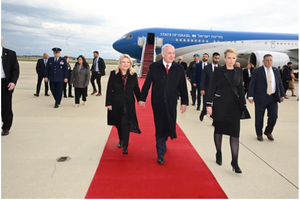ISI actions fuel unrest in Pakistan-occupied Jammu and Kashmir, Gilgit-Baltistan

By Dr Sakariya Kareem
In the tumultuous regions of Pakistan-Occupied Jammu and Kashmir (POJK) and Gilgit-Baltistan, recent protests have exposed the deep-seated discontent among the populace.
Over the last fortnight, demonstrations have broken out across all 10 districts of Gilgit Baltistan in response to the surge in the cost of subsidized wheat.
Led by the Awami Action Committee (AAC), protesters assembled in diverse locations such as Skardu, Gilgit, Hunza, Nagar, Ghizer, Ghanche, Diamer, Astore, Shigar, and others.
Under the oppressive shadow of Pakistan’s unstable government, (POJK) and Gilgit-Baltistan grapple with an acute power crisis, thrusting its residents into the harsh reality of relentless load-shedding. Local authorities have been accused of exhibiting a callous disregard for the plight of the people.
In the heart of this dire situation, Gilgit Baltistan becomes a cauldron of discontent, fueled by surging costs, oppressive taxes on essential commodities and inhuman living conditions. The electricity debacle stands as a stark symbol of administrative incompetence, wreaking havoc on businesses and subjecting the populace to the throes of economic turmoil.
The misrule of Pakistan, coupled with economic hardships, has sparked a flashpoint, leading to massive demonstrations and a critical evaluation of the governance in these areas, with particular scrutiny on the role of the Inter-Services Intelligence (ISI).
The attempt by Pakistan to celebrate ‘Kashmir Solidarity’ Day last year was overshadowed by the harsh reality unfolding on the streets of POJK – a region grappling with a severe economic meltdown marked by rising inflation and rampant unemployment. The observance of ‘Kashmir Solidarity’ Day in February by Pakistan not only highlighted the challenging economic conditions in POJK but also underscored the pervasive influence of propaganda.
This is bound to be repeated this year given the dire situation in the region. Beneath the surface of the celebration lay a heap of manipulation, farce, and propaganda, revealing a concerted effort to shape narratives that might diverge significantly from the harsh realities faced by the people in the region.
The ISI’s involvement added a layer of strategic messaging aimed at advancing specific agendas, potentially obscuring the genuine concerns of the local populace in POJK.
The leadership, both military and political, found themselves embroiled in internal conflicts, leaving millions affected by floods and food crises.
Repeated exploitation by successive Pakistani Prime Ministers by globe-trotting pursuit of funds, coupled with the absence of effective leadership, has further fueled public anger.
The situation in Gilgit Baltistan (GB) exemplifies the longstanding issue of a region being subject to Pakistan’s administration without being granted provincial status, all while being entangled in a broader and enduring territorial dispute with India.
The Awami Action Committee (AAC) rightly points out the arbitrary nature of significant decisions, such as those related to the Finance Act 2023, tax impositions, and the surge in wheat prices, which have been imposed unilaterally by the government without seeking input from the people of GB.
The lack of representation in the parliament has perpetuated a glaring absence of basic constitutional and political rights for the people of GB for a staggering 75 years.
The demand for a share in the National Finance Commission award, a reasonable request given the resource distribution mechanism across provinces and territories, is hampered by the region’s non-provincial status, highlighting the gross injustices faced by the people of GB. The continued denial of their rights paints a damning picture of the government’s disregard for the aspirations and well-being of the region’s inhabitants.
In parallel, Gilgit Baltistan witnessed its share of turmoil, with local authorities and the federal government openly accused of land grabs, leading to furious protests. The military’s alleged exploitation of public properties and the conversion of the region into a sectarian centre raised alarming concerns. The governance of POJK by Pakistan, seen as a strategic move, faced intense criticism for its lack of autonomy, potentially fueling violent resistance.
These events underscore the historical context of popular resistance movements in both regions, with the Pakistani government, led by the ISI, exploiting religious fault lines to quell dissent. Various associations, lawyers, and students played crucial roles in amplifying protests against economic policies and human rights violations, with the ISI’s influence cast as a sinister force behind the scenes.
As we delve into the economic conditions, it becomes evident that the people in POJK are grappling with soaring inflation and unpaid salaries, forcing them to take to the streets. The ISI’s covert hand in exacerbating economic hardships is increasingly apparent, with allegations of its manipulation of the CPEC for strategic gains rather than the welfare of the local population. The absence of basic amenities and allegations of draconian laws curbing freedom of speech has only fueled discontent.
A stark contrast emerges when comparing the development in Jammu and Kashmir (J&K), especially the Indian-administered part, with the economic challenges faced by the residents of POJK and Gilgit-Baltistan. While J&K experienced significant development activities and a surge in tourism, the beleaguered people of POJK had little to celebrate. The flourishing conditions on the Indian side, particularly after the removal of Article 370, serve as a stark indictment of Pakistan’s governance.
The economic grievances extend beyond inflation and unpaid salaries. In POJK, the people collectively decided not to pay their inflated electricity bills, protesting against the denial of their fundamental right to freedom of speech. The ongoing protests in POJK reveal two notable features: the increasing involvement of women, breaking social taboos, and students demanding control of POJK resources be given to its people.
Expressing solidarity with the PoJK Awami Action Committee, students from POJK held protests in major Pakistani cities like Islamabad, Lahore, and Karachi, demanding the revival of the student union, fee reduction, and better hostel facilities. These demands expose the inadequacy of educational facilities for POJK students and highlight the discrimination faced by students belonging to POJK within Pakistan.
The protests in POJK have seen an unprecedented participation of women, challenging societal norms. Simultaneously, the students are demanding control of POJK resources for its people. These developments, if sustained, could attract international attention to the institutionalized oppression faced by people in POJK, particularly under the shadow of ISI influence.
The economic hardships faced by the residents of POJK and GB have prompted a call for Islamabad, and especially the ISI, to address their grievances before it’s too late. The denial of basic amenities, fundamental rights, and draconian laws curbing freedom of speech in POJK are highlighted as major concerns. The ISI’s covert manipulation of the region’s economic resources for strategic gains is increasingly apparent, and the international community must scrutinize its role.
Islamabad’s and the ISI’s human rights records in POJK, citing instances of enforced disappearances reported by the Defense of Human Rights (DHR) in its 2023 report. The need for recognition of the right to freedom and self-determination for the people in POJK and GB is emphasized, urging Islamabad and the ISI to address their concerns before the situation escalates further.
The recent protests in POJK and Gilgit-Baltistan are symptomatic of deep-seated grievances arising from economic turmoil, lack of autonomy, and denial of basic rights. The international community must pay heed to the cries for freedom emanating from these regions, urging Pakistan, particularly the ISI, to reassess its governance and policies to ensure the well-being and rights of its residents in POJK and Gilgit-Baltistan. The flourishing conditions on the Indian side, in stark contrast, underscore the failure of Pakistan’s governance in the disputed regions.
The writer is a political analyst and columnist for Asian Lite International



